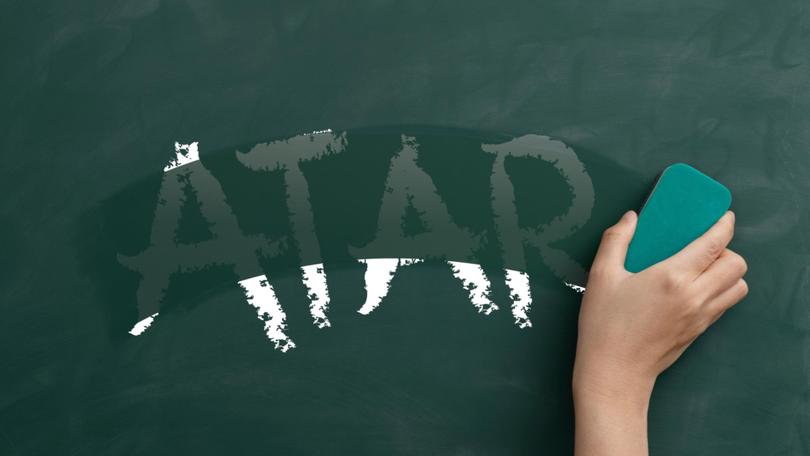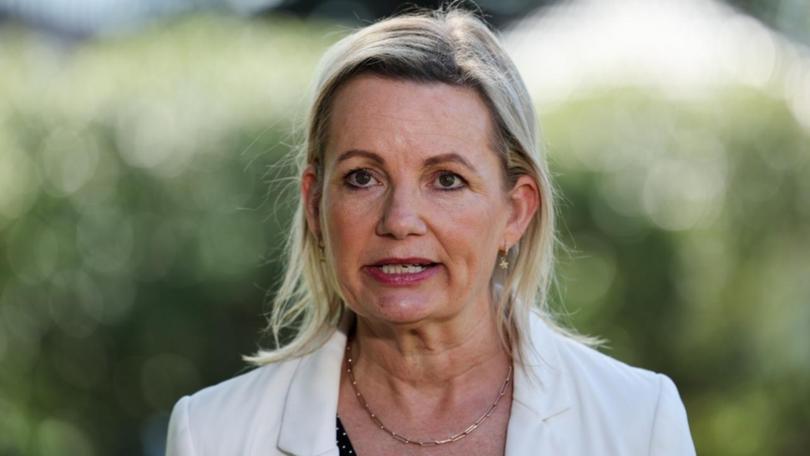Coalition calls for vocational education in schools to knock ATAR off throne
Australia is ‘failing our kids’ and a concerted effort must be undertaken to reframe thinking about vocational education in schools and ‘kick ATAR off its throne’, the Coalition says.

Australia is “failing our kids” and a concerted effort must be undertaken to reframe thinking about vocational education in schools and “kick ATAR off its throne”, the Coalition says.
In the aftermath of last month’s flurry of ATAR coverage, deputy Liberal leader Sussan Ley in an opinion piece for The Nightly said the “Vocational Cringe” running rife around the country, which leads students to see skills and training pathways as second rate and ATAR as “king”, needs challenging.
Failing to do so, the Coalition’s spokesperson for skills warned, would make Australia poorer in the long-term because “in a world where Chat-GPT can pen an essay or a business plan in seconds, skills are fast becoming the most precious commodity”.
Sign up to The Nightly's newsletters.
Get the first look at the digital newspaper, curated daily stories and breaking headlines delivered to your inbox.
By continuing you agree to our Terms and Privacy Policy.“The truth is the ATAR is the focus of the vast majority of our schools across Australia,” she said.
“Despite being wholly reliant on our vocationally qualified workers, Australia has become a university nation – to a fault... University, kids are told, is for the smart kids. The rest go to TAFE.
“Our schools are leaving too much potential untapped.”
She said Australia could learn a thing or two from Germany, where 50 per cent of university-bound high school students applied for vocational training, but that would involve confronting entrenched attitudes.
“This needs to be a national priority because this Vocational Cringe is having a real impact on our prosperity and social fabric,” she said.
“Australia needs to kill Vocational Cringe for good. We need to kick the ATAR off its throne. We need to get skills back in our schools.”

In last year’s TAFE value and perception challenge report, which examined public perceptions of vocational education in Victoria, author Mark McCrindle found despite recent inroads, there are “enduring negative perceptions around the TAFE offering and experience”.
One way to start the cultural shift is to reframe language, with high school students still being exposed to a TAFE experience of 20-30 years ago that no longer represents the contemporary system.
The report suggested that to rewire perceptions about TAFE graduates being less employable and earning less, the sector could “empower satisfied graduates to be ambassadors”. He also recommended spreading student success stories across “diverse industries” to rewrite the perception that “smart people go to university”.
Asked if he agreed Australia’s culture placed less value on vocational education, Skills and Training Minister Andrew Giles said encouraging more students to skill up was one of the Albanese Government’s “top priorities”.
“Free TAFE is providing an accessible pathway to secure work and cost-of-living relief to more than half a million Australians. The Albanese Government is committed to building the future of our country which is why we’ve proposed legislation to make Free TAFE enduring,” he said, also pointing to the landmark National Skills Agreement which increased investment to the system.
“The Albanese Labor Government has also recently committed $27.7 million to lay the foundations for greater tertiary harmonisation. This includes improving the experience of students and creating pathways through better credit recognition arrangements between VET and higher education.
“We’ve also set a tertiary education attainment target of 80 per cent: Four in five people to have at least a Certificate III or equivalent by 2050.”
As Mr Giles warned a Coalition Government would cut free TAFE, Ms Ley said the program had “not done anything to change the structural issues of skills in Australia”.
Her intervention came as the powerful Business Council of Australia cast fresh doubt on Labor’s plan to legislate ongoing free TAFE.
Labor currently has legislation before the House of Representatives that would give states and territories funding to provide 100,000 free TAFE places per year from 2027.
BCA chief Bran Black wrote in its submission to the Senate inquiry into the Bill that while the organisation was “supportive of the Government’s focus on reducing financial barriers to education and training”, it was opposed to legislating free TAFE because “programs such as this should not be set by legislation”.
“Rather, they should be part of a normal budget and policy setting process which identifies the problems that need to be addressed and the most effective and sustainable solutions,” he wrote.
Mr Giles said while their position on the legislation was disappointing, the Government was buoyed by the real-life experiences.
Recent departmental data for enrolments in fee-free TAFE between January 2023 to June 2024 showed more than 500,000 people had entered the program.

